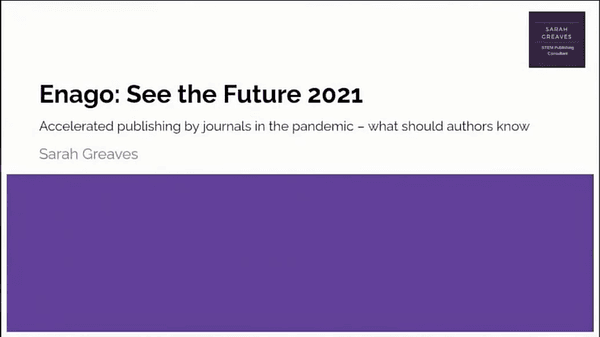Would you like to see your presentation here, made available to a global audience of researchers?
Add your own presentation or have us affordably record your next conference.
Objective Peer review is the backbone of scientific medical
publishing. Most reviewers receive little reward and face
competing demands for their time. Diseases of the Colon &
Rectum is a surgical specialty journal that, similar to most
journals, relies on peer review to define what is new and
legitimate to publish. It was hypothesized that the frequency
of “nonresponse” and “reviewer declines” responses to review
requests increased over the last 6 years.
Design In this observational study, using 2 data sets, the
editor in chief (EIC) (1) prospectively collected “reviewer
declines” e-mail responses over a 6-year period, examining
reasons for declining reviews, frequency of recommending
alternate reviewers, and other comments and (2), for this
same 6 years, the EIC queried the manuscript submission and
review system for total review invitations by editor, number
declined, invitations without response, and for reviews
cancelled due to noncompletion.
Results From January 2016 to December 2021, the journal
received 872 to 1379 submissions per year (mean of 1024
submissions per year) for which 24,766 review invitations
were sent, 17,306 by the EIC (70%). Overall, 19,004
invitations were accepted, of which 18,100 were completed on
time (73%), 904 were initially accepted but cancelled due to
noncompletion of the review (4%), 2235 invitations were
declined (9%), and 3496 (14%) never received a response
(Figure 19). The EIC prospectively collected 516 “reviewer-
declines” e-mail responses from 474 unique reviewers
representing a 23% sample of review declinations. Among
these, 41% provided no reason and 34% were “busy with other
commitments”; other common reasons included “away from
the office” (8%), vacation (7%), and family obligations (2%),
among others. Conflicts of interest were cited in 2% of
declines and in less than 1% allegations of scientific
misconduct were made by associate editors or reviewers for
other journals. These cases involved the same manuscript and
allegations of duplicate submission; the manuscript was
withdrawn. Fourteen percent of declining reviewers suggested
alternate reviewers (often with e-mail addresses). Reasons for
declining did not change over time. Over the 6 years, EIC
invitations became less likely to be declined and reviews
cancelled for delay decreased. This appeared to coincide with
development of a mentored peer-review program and
institution of high-profile reviewer awards at the Society
annual meeting. These data also encase the pandemic when
editorial board members and reviewers were very involved in
acute care of patients with COVID-19.

Conclusions This report becomes a baseline for ongoing
quality improvement. There were no substantial changes in
frequency of or reasons for declining reviews over time,
particularly during the COVID-19 pandemic.
Conflict of Interest Disclosures Susan Galandiuk receives a
stipend for editorial work from the American Society of Colon &
Rectal Surgeons.


